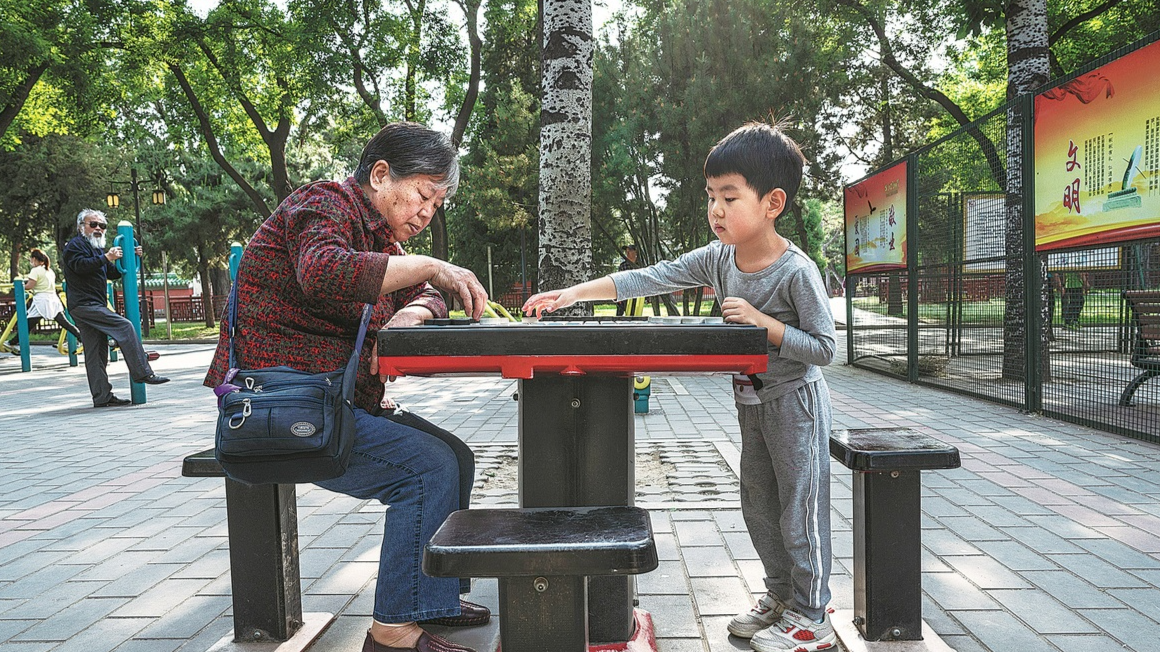
China will gradually raise the statutory retirement age, according to a draft decision submitted for review at a session of the Standing Committee of the 14th National People's Congress, which started on Tuesday.
The move is aimed at coping positively with the aging problem, better using human resources and showing greater respect to older people who still wish to work, experts said.
The raising of the retirement age is based on people's increased life expectancy and extended years of schooling, and is a positive move to deal with the aging problem and lower birthrate, experts said.
Under the current retirement policy, men in urban areas retire at 60, and women retire at 50 or 55, depending on their job or occupation.
READ MORE: China's top legislature starts standing committee session
Figures from the Ministry of Civil Affairs showed that China's elderly population, age 60 and above, accounted for more than one-fifth of the nation's total population last year, and the aging problem may intensify in the future.
Specifically, the number of people in China aged 60 and above reached 296.97 million by the end of 2023, accounting for 21.1 percent of the nation's total population. Among them, the number of those aged 65 and above was 216.76 million.
Additionally, the Chinese people's average life expectancy has been continuously rising over the past decades, reaching 78.6 years in 2023, up from 67 in 1980 and 76.34 in 2015, according to recent figures from the National Health Commission.
ALSO READ: Policies stress full life-cycle services in China
"The move is a significant and well-thought-out decision, given China's current social and economic situation and population structure. Improved healthcare and people's increasing life span mean that elderly people with a better health condition and rich working experience can continue to use their skills to get incomes," said Pang Shi, director of the Chinese Academy of Personnel Science's department of employment and entrepreneurship.
Lin Jia, director of Renmin University of China's Institute for Labor Law and Social Security Law, said that China's current retirement ages have been applied since the 1950s and have not been adapted to the nation's current economic and demographic situations.
"The aging population is growing, while the birthrate is declining, thus the proportion of the working-age population will decrease," Lin said. "Many females in their 50s still have a strong desire to work and are capable of doing so.
ALSO READ: China aims to strengthen elderly care
"Another consideration is the extended years of schooling, due to which many young people get their first job at around 25 or 30 after finishing a postgraduate or doctoral education, thus shortening their working years," she said. According to the Ministry of Education, 240 million people in China completed higher education as of 2023, and the average years of schooling for new members of the workforce is 14.
"People have more space to make choices, in view of their own health conditions, economic situation and view of personal career development, rather than adopting a 'one-size-fits-all' approach, which makes the policy easier to be accepted by the public," she said.
READ MORE: New eldercare hubs needed to better serve rural residents
Pang, the director, added that the move has attracted greater attention from the public, as it is closely related to employment and pensions, adding that it's necessary for the government to conduct thorough research and take these steps at a steady pace.
In terms of the overall job market, the number of elderly people who postpone their retirement may not be that large, said Pang, adding that steps should be taken to improve laws or regulations to protect the working rights of the elderly.



